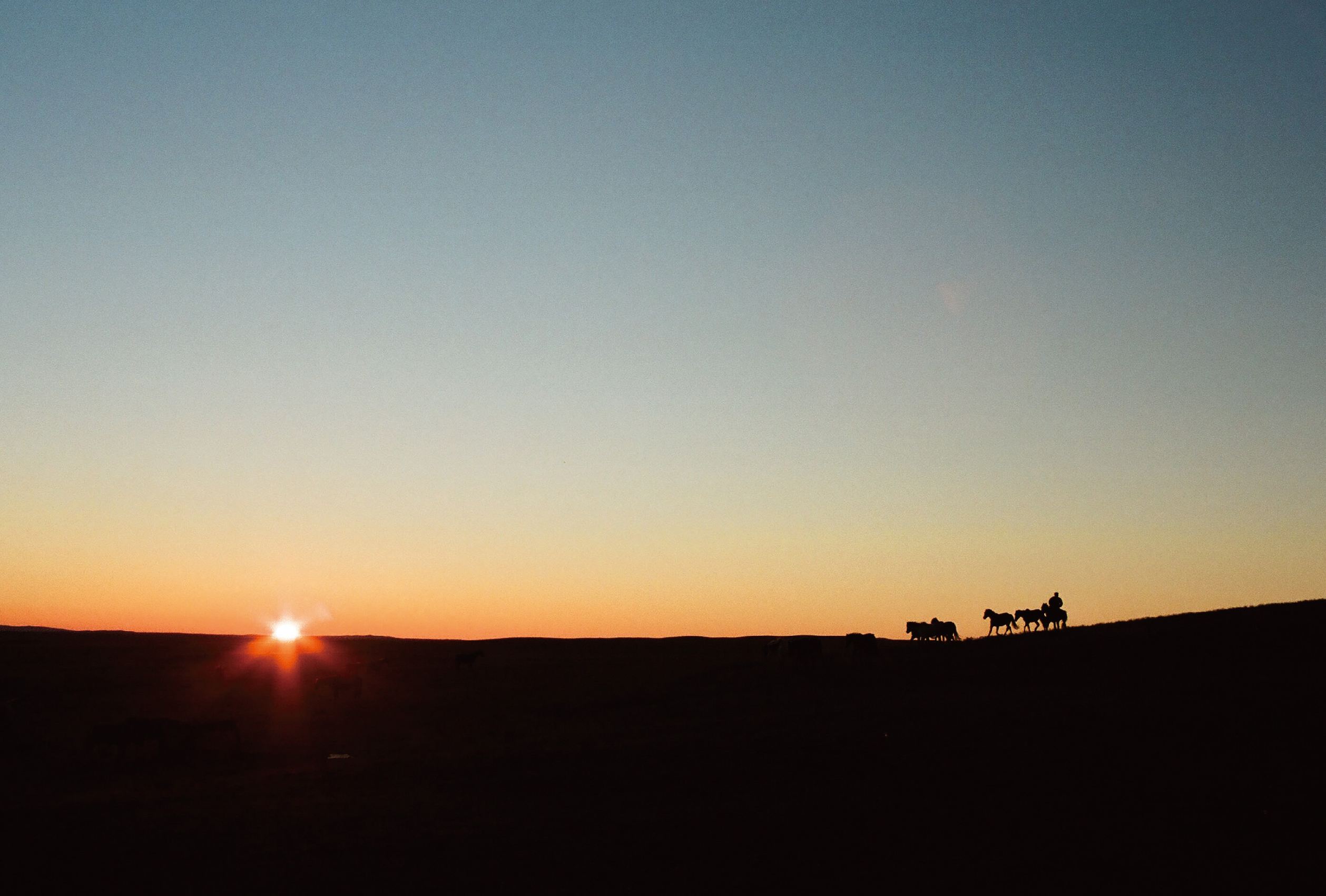生と死をめぐる信仰

カザフ草原の日没 2007年10月
| 研究者 | 藤本透子 FUJIMOTO Toko |
|---|---|
| 研究分野 | 文化人類学、中央アジア地域研究 |
| 研究地域 (調査地) |
カザフスタン |
私の研究
広大な草原の中の小さな村に滞在していた時、死者の安寧を祈りながら子どもたちのすこやかな成長を願う人々の姿にふれたことが、研究の原点になっています。生者と死者の関係をどう捉えるのか、世代を超えて社会をいかに継承していくのかなどの普遍的な問いに気づかされました。かつて遊牧していたカザフ人は20世紀に定住し、さらに現在では村から都市への移住や、国境を越えた移住も増えています。急激な変化のなかで、人と人とのつながりや、生と死をめぐる信仰がどう維持されていくのか、社会の再編過程と宗教の関係について研究を進めています。
一緒に研究している人:カザフスタン R.B.スレイメノフ東洋学研究所 歴史学博士M.Kh.アブセイトヴァ
藤本透子に初めて会ったのは1998年のことでした。その時から彼女は、20年以上にわたり民族学調査を行い、2019年には「大草原の歴史と文化」プログラムに基づく国際学術調査にも参加しました。フィールドワークをとおして彼女はカザフ語に習熟し、カザフの生活習慣、儀礼、気質、宗教、社会規範を深く探求するという経験をしています。この経験が、すぐれたモノグラフや論文を生み出す基盤となってきました。彼女が関わった民博のすばらしい展示は、日本における中央アジアの歴史と文化に関する知識の普及に、新たな役割を果たしてくれるものと思っています。(日本語訳)
I first met Toko Fujimoto in 1998. Since that time, she has conducted ethnological field research for over 20 years; for example, in 2019, she participated in an international project titled History and Culture of the Great Steppe. While undertaking her fieldwork, Toko mastered the Kazakh language and experienced the everyday life, rituals, mentality, religion, and social customs of the Kazakh people. Based on her many years in the field, she has written numerous excellent monograph and papers. I am confident that the wonderful exhibition at the National Museum of Ethnology (Minpaku), for which Toko collected many ethnological materials, will play a novel and important role in spreading knowledge about the history and culture of Central Asia in Japan. M. Kh. Abusseitova (Doctor of Historical Science, R. B. Suleimenov Institute of Oriental Studies, Kazakhstan)
